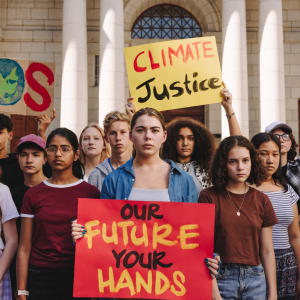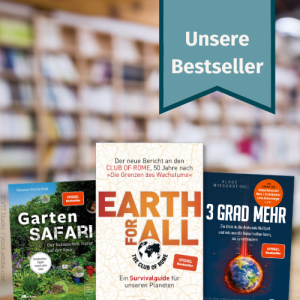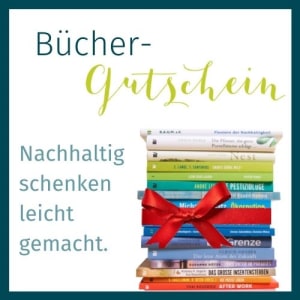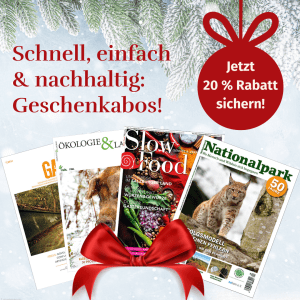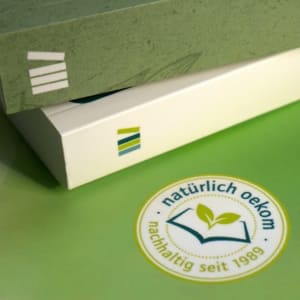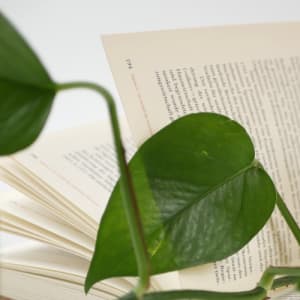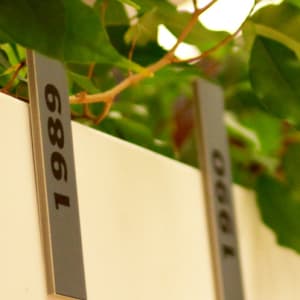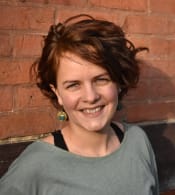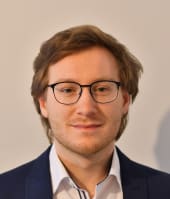GAIA Masters Student Paper Award
The international journal GAIA – Ecological Perspectives for Science and Society invites Masters students to participate in the GAIA Masters Student Paper Award. Masters students are encouraged to submit their results from research-based courses or Masters theses in the field of transdisciplinary environmental and sustainability science. Each year, a jury will select one paper as the winner of the GAIA Masters Student Paper Award.
The award is meant to honor research
- which holds relevance for important societal transformations
and/or - which has discovered new paths of inter- and transdisciplinary environmental or sustainability research.
The winner will be granted
- a price money of 1'500,- EUR, endowed by the Selbach Environmental Foundation and Dialogik gGmbH
- a free one-year subscription to GAIA, including free online access.
The winner may also be encouraged to submit his/her paper for publication in GAIA. The GAIA Masters Student Paper Award will be presented on the occasion of the GAIA Annual Meeting, held every spring at different locations.
Jury
- Andreas Bischof, TU Chemnitz, DE
- Daniel Fischer, Leuphana University Lüneburg, DE (Editorial Board GAIA)
- Sabrina Hedrich, TU Bergakademie Freiberg, DE
- Irmi Seidl, Eidg. Forschungsanstalt WSL, Birmensdorf, CH (Editorial Board GAIA)
- Bianca Vienni Baptista, ETH Zürich, CH
- Marianne Penker, BOKU University Wien, AT
Thanks to all previous jury members:
Daniel Lang (Lüneburg), Jörg Matschullat (Freiberg), Pim Martens (Maastricht), Franz Rauch (Klagenfurt), Ulrich Strasser (Innsbruck), Ulli Vilsmaier (Lüneburg), Renate Hübner (Klagenfurt)
In 2021, the jury wrote an Editorial for GAIA, looking back on seven years of the GAIA Masters Student Paper Award >>.
Submission
Date for submission: November 25, 2024
Students who have completed their Master's thesis may submit an article, as long as they obtained their Master's degree no more than 18 months before the submission date. Kindly let us know the date you received your degree.
Before submission, please consult GAIA's guide for authors » for information on the journal's aims and scope and on manuscript preparation.
Please prepare your manuscript according to the specifications for GAIA's Research section and carefully consider the technical details for submission. Especially: Your paper must not exceed the length of 32.000 characters including spaces and needs to be submitted in Word format. The limit is including references.
Please download this form (pdf 1,6 MB) and fill in. Submit the form together with your article.
We encourage submissions written in English; however, articles written in German will equally be considered.
Further information on the journal »
Please submit your article to gaia@oekom.de
Click here for a PDF version of the call for contributions »
How to prepare your manuscript
The following documents are meant to guide you through the process of preparing your submission.
1. GAIA guide for authors
Please consult GAIA's guide for authors for information on the journal's aims and scope, on the journal's section and on manuscript preparation. Please prepare your manuscript according to the specifications for GAIA's Research section and carefully consider the Technical details for submission. Especially: Your paper should not exceed the length of 32.000 characters including spaces and needs to be submitted in word format.
2. EASE Guidelines for Authors and Translators of Scientific Articles
The European Association of Science Editors (EASE) has provided excellent guidelines for scientific authors in order to »provide simple, clear advice aimed at making international scientific communication more efficient.«
The guidelines are freely available in pdf format in more than 20 languages.
Award Winners
Winner 2024: Marion Meyers
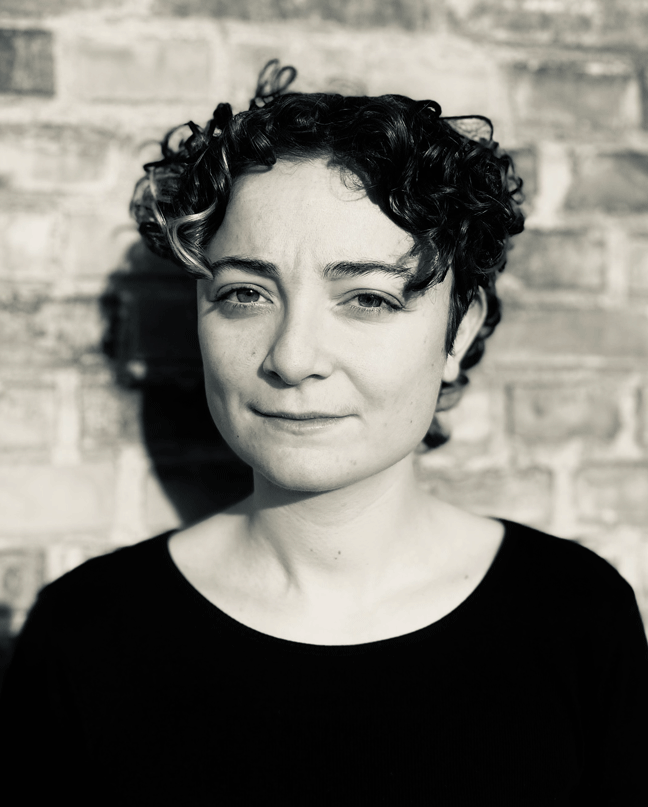
Marion Meyers receives the award for her contribution »A Conviviality Perspective on Machine Learning. Discussing the Appropriateness of Artificial Intelligence to a Degrowth Context.«
Marion Meyers holds a Bachelor's degree in Data Science from Maastricht University and a Master's degree in Science, Technology and Policy from ETH Zurich.
Her main interest is to use her technical background to promote social and environmental justice in the discourse around digital technologies.
The Award jury commends her contribution for its thought-provoking content and boldness in connecting the critical yet often disparate topics of degrowth and machine learning / artificial intelligence. Its interdisciplinary approach and novel perspectives make it a deserving recipient of the award.
Shortlist 2024:
Ravn Haid (Kiel University, DE):
»Politicizing the green hydrogen projects of Heide though the lens of socio-technical imaginaries.«
Bismark Razak Haruna (ITAS Karlsruhe, DE):
»Social Life Cycle Assessment of Sodium Ion Batteries.«
Oliver Truffer (ETH Zurich, CH):
»Getting a grip on agricultural sustainability challenges: Ideas, interests and institutions shaping post-exceptionalist policymaking.«
The price money of 1'500 Euro is being endowed by Selbach Environmental Foundation and Dialogik gGmbH.


Winner 2023: Theresa Landwehr

Theresa Landwehr receives the award for her entry »Climate change perceptions in Bavaria: Revealing the influence of socio-demographic and environmental factors«.
Theresa Landwehr completed a dual-subject Bachelor in Sociology and Geography at the University of Osnabrück, Germany. Subsequently she completed an international and interdisciplinary Master's degree in Global Change Ecology with additional studies in Environmental Law at the University of Bayreuth, Germany. She is working as Junior Consultant at Deutsche Gesellschaft für Internationale Zusammenarbeit (GIZ).
Regarding Theresa Landwehr's paper, the Award jury appreciated the high relevance for sustainability research, the important research topics, the interdisciplinary approach, as well as the impressive results and data analysis.
Based on her award submission, Theresa Landwehr and colleagues published an open access article in GAIA titled "Climate change perceptions in Bavaria: Revealing the influence of socio-demographic and local environmental factors".
Shortlist 2023:
Naomi Bi (ISOE – Institute for social-Ecological Research; Goethe University Frankfurt):
»The (in)visibilization of differences in the Anthropocene – An intersectional analysis of conceptualizations of nature and the human in the Anthropocene narrative«
Johannes Korak (University of Vienna):
»Highway to Hell. Masculinities in the Ecological Crisis«
The price money of 1'500 Euro is being endowed by Selbach Environmental Foundation and Dialogik gGmbH.


Winners 2022: Hanna Sophie Mast & Amke Oltmanns
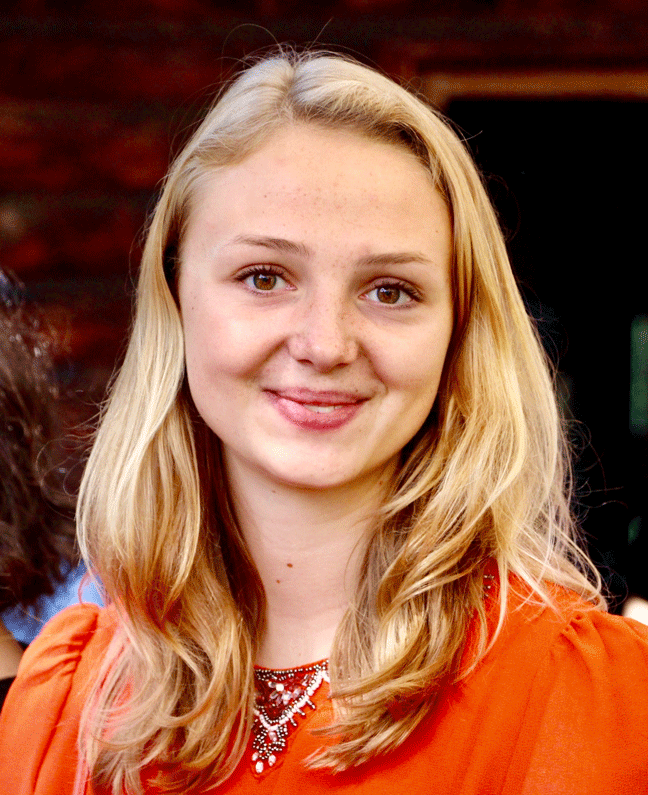
Hanna Sophie Mast receives the award for her entry »Conflicting socio-technical visions of the future built environment: An analysis of current discourses on timber construction in France and Germany«.
She studied Political Science and Sociology (M.A.) in a franco-german double degree at University of Stuttgart and Sciences Po Bordeaux (France) and specialized in regional sustainable development strategies at University of Guadalajara (Mexiko). Currently she is working as a free-lance moderator encouraging young people to engage in public debates.
Based on her award submission, Hanna Sophie Mast published an open access article in GAIA titled "Conflicting sociotechnical imaginaries of the future built environment: An analysis of current discourses on timber construction in France and Germany"
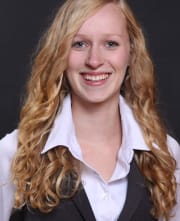
Amke Oltmanns receives the award for her entry »Über die Transformationskraft von Realexperimenten für die Mobilitätswende in der Stadt«.
She received her Bachelor's and Master's degrees in Urban planning at HafenCity University in Hamburg. Currently she is working as a project manager at ZEBAU Centre for Energy, Construction, Architecture and the Environment on Climate protection concepts, energy-related neighbourhood concepts, communication and event planning.
Based on her award submission, Amke Oltmanns and colleagues published an open access article in GAIA titled "Die Transformationskraft von Realexperimenten für die Mobilitätswende in der Stadt: Wie temporär autofreie Zonen Innenstädte nachhaltig und klimagerecht verändern"
Shortlist 2022:
Fjornes, Jan Kilian (Humboldt-Universität zu Berlin):
»Driving the energy transition forward by learning from past dynamics: The case of Bavaria.«
Jung, Manuel (Technische Universität München):
»Measuring the transition in mobility experiments. How do we know if pilot projects lead to a sustainable future?«
The price money of 1'500 Euro is being endowed by Selbach Environmental Foundation and Dialogik gGmbH.


Winners 2021: Rebekka Diestelkamp & Christian Schnurr
Rebekka Diestelkamp receives the award for her entry »Of Other Places: Place-Making Between Contradiction and Conformity«.
Rebekka Diestelkamp was born 1992 in Uelzen (Germany). She Studied General and Comparative Literary Studies, English and Religion Studies (BSc) at FU-Berlin and Transformation Studies (MSc) at European University Flensburg.
Based on her award entry, Rebekka Diestelkamp published an article in GAIA titled »Making a difference ‐ place-making and negotiating change: A study of an intentional community in Northern Germany«.
Christian Schnurr receives the award for his entry »Naturstoffe im Zeitalter ihrer technischen Reproduzierbarkeit«.
Christian Schnurr was born 1995 in Landshut (Germany). He studied Chemistry (MSc) at Technical University Munich. Currently he is pursuing a bachelor's degree in literature and philosophy (BSc) at LMU Munich.
Based on his award entry, Christian Schnurr published an article in GAIA titled »Ist das natürlich oder ist da Chemie drin?“ Ansätze zu einer transdisziplinären Verständigung über die ,(Un-)Natürlichkeit‘ der Chemie«.
Shortlist 2021:
Boogen, Annina (Zürcher Hochschule der Künste ZHdK.):
»OPERATION BETON – Zur Wahrnehmung von Staudämmen in alpinen Landschaften. Eine verwobene Perspektive.«
Fontana, Giulia (ETH Zurich)
»"Simply do it now!" But what, why and how? Insights into Transition Initatives' understanding of socio-ecological problems,
visions and strategies in search for connections between inclusivity and effectiveness.«
The price money of 1'500 Euro is being endowed by Selbach Environmental Foundation and Dialogik gGmbH.


Winner 2020: Sabrina Schmidt
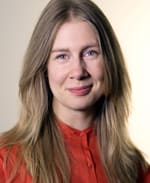 Sabrina Schmidt receives the award for her entry "How does a future-fit economy take root? An analysis of diffusion and adoption of future-fit business practices".
Sabrina Schmidt receives the award for her entry "How does a future-fit economy take root? An analysis of diffusion and adoption of future-fit business practices".
Sabrina Schmidt was born 1991 in Salzgitter (Germany). She studied Psychology (BSc) and Management and Organisation Studies (MSc) at Technical University Chemnitz.
Shortlist 2020:
Tim Lüschen, Schumacher College, UK:
»The World In-Between - Exploring why and how systemic constelllations can support processes of transformation towards sustainability«
The price money of 1'500 Euro is being endowed by Selbach Environmental Foundation and Dialogik gGmbH.


Winner 2019: Monika Austaller
 Monika Austaller receives the award for her entry »Another runway towards the climate crisis? Insights from Multicriteria Mapping and Qualitative Content Analysis at the airport Vienna conflict«.
Monika Austaller receives the award for her entry »Another runway towards the climate crisis? Insights from Multicriteria Mapping and Qualitative Content Analysis at the airport Vienna conflict«.
Monika Austaller was born in 1992. She studied International Development (B.A.) in Vienna and Macerata, Italy, and Socio-Ecological Economics and Policy (M.Sc.) at the Vienna University of Economics and Business.
Shortlist 2019:
Hişar Ersöz, TU Berlin:
Urban Transformation Design: Grundlagen eines Designverständnisses zur Gestaltung urbaner Reallabore
Christoph Kollert, Bauhaus-Universität Weimar:
»Changing cycling behaviour: Synthesis of a theoretical framework as a cross-disciplinary critique of urban design«
Nina Liebhaber, Universität Augsburg:
»A New Outlook for Environmental Ethics: Processual Utopias as Method. Ruth Levitas' Method of Imaginary Reconstituion of Society Exemplified by the Anti-Pesticide-Initiative in the Village Mals«
Rea Pärli, ETH Zürich:
»Structure Matters – A Social Network Analysis on Swiss Stakeholders’ Information Exchange about SDG 6«
The price money of 1'500 Euro is being endowed by Selbach Environmental Foundation and Dialogik gGmbH.


Winner 2018: Marie-Luise Hertkorn
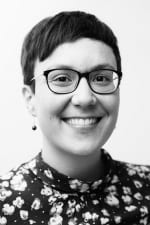 Marie-Luise Hertkorn receives the award for her entry »Food that gives you strength. Why the recognition of implicit knowledge is indispensible for achieving food sustainability«.
Marie-Luise Hertkorn receives the award for her entry »Food that gives you strength. Why the recognition of implicit knowledge is indispensible for achieving food sustainability«.
Marie-Luise Hertkorn was born in 1989 in Schwäbisch Hall, Germany. She studied Organic Agriculture (B.Sc.) at the University of Kassel, Germany, and History and Philosophy of Knowledge (M.A.) at ETH Zurich. Currently she is working with the Kenyan agricultural NGO »Biovision Africa Trust« in Nairobi, a placement which forms part of the NADEL M.A.S. in Development and Cooperation at ETH Zurich.
Shortlist 2018:
Markus Löw, Alpen-Adria-Universität Vienna:
»Spatial Patterns of Land Cover Dynamics on Samothraki Island - Applying Remote Sensing on complex Mediterrenean Pastures«
Ferdinand Revellio, Leuphana Universität Lüneburg:
»Transition to a Circular Economy: Insights from an Innovation-Lab on Sustainable Smartphones«
Anne Stein, Dagmar Moelleken, Leuphana Universität Lüneburg:
»Formative evaluation in student-driven transdisciplinary research projects – a primer«
The price money of 1'500 Euro is being endowed by Selbach Environmental Foundation.
Winner 2017: Charlotte Kottusch
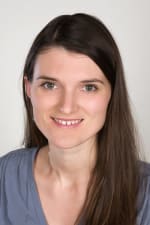 Charlotte Kottusch receives the GAIA Masters Student Paper Award 2017 for her entry »The Socio-Ecological Impacts of Palm Oil Production in Rural Communities. A Study of Material Flows in the Micro-Region Tomé-Açu in Pará, Brazil«.
Charlotte Kottusch receives the GAIA Masters Student Paper Award 2017 for her entry »The Socio-Ecological Impacts of Palm Oil Production in Rural Communities. A Study of Material Flows in the Micro-Region Tomé-Açu in Pará, Brazil«.
Charlotte Kottusch was born 1989 in Münster, Germany. She received her Bachelor’s degree in Development Studies from the University of Vienna and her Master’s degree in Social Ecology from Alpen-Adria Universität Klagenfurt-Wien-Graz, Institute for Social Ecology (SEC) Vienna.
Based on her award entry, Charlotte Kottusch published an article in GAIA titled »Sustainable Palm Oil? Insights from Material Flow and Land Use Analysis in Brazil’s Production Hotspot«.
Shortlist 2017:
Maria Juschten, Heidi Leonhardt, WU Vienna University of Economics and Business:
»Questioning the Status Quo: How Non-Growing Companies Succeed in a Growth-Driven Economy«
Anna Meissner, University of Saskatchewan:
»Towards Improved Water Management. Using a Model of River Geomorphology as a Tool for Sustainable Community Based Monitoring«
 The price money of 1'500 Euro is being endowed by Selbach Environmental Foundation.
The price money of 1'500 Euro is being endowed by Selbach Environmental Foundation.
Winner 2016: Rory A. Walshe
 Rory A. Walshe receives the award for his entry »Ayni, Ayllu, Yanantin and Chanincha: The Cultural Values Enabling Adaptation to Climate Change in Peruvian Andean Communities«.
Rory A. Walshe receives the award for his entry »Ayni, Ayllu, Yanantin and Chanincha: The Cultural Values Enabling Adaptation to Climate Change in Peruvian Andean Communities«.
Rory A. Walshe was born 1989 in Oxford, UK. He received his Bachelor's degree in Disaster Management from Coventry University and his Master's degree in Climate Change and International Development from University of East Anglia. He is currently a PhD student at King's College London.
Shortlist 2016:
Lukas Paul Fesenfeld, Hertie School of Governance Berlin:
»Long-Term Governance: A Comparative Case Study of Urban Food Strategies and Sustainable Food Procurement Regulations«
Melanie Böhme & Bente Riewerts, Leuphana Universität Lüneburg:
»Agricultural Supply With Recycled Phosphates in Terms of Sustainability – a Transdisciplinary Scenario Analysis For The Administrative District of Lüneburg«
Philip Bernert, Tamara Schaal, Lena Kühl, Angelika Haaser, Leuphana Universität Lüneburg:
»Establishing Real-life Laboratories: A Transdisciplinary Approach«
 The price money of 1'500 Euro is being endowed by Selbach Environmental Foundation.
The price money of 1'500 Euro is being endowed by Selbach Environmental Foundation.
Winner 2015: Ina Soetebeer
In 2015, the GAIA Masters Student Paper Award has been given for the first time.
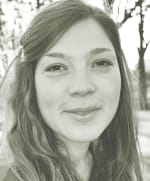 The winner is Ina Soetebeer with her entry »Well-being and Prosperity beyond Growth – Discursive Struggles in the German Enquete Commission on Growth, Prosperity and Quality of Life«.
The winner is Ina Soetebeer with her entry »Well-being and Prosperity beyond Growth – Discursive Struggles in the German Enquete Commission on Growth, Prosperity and Quality of Life«.
Soetebeer was born 1985 in Kassel, Germany. She studied Regional Studies of Latin America at Freie Universität Berlin and Universidade Nova de Lisboa (B.A.), and Environmental Governance (M.Sc.) at the University of Freiburg.
Shortlist 2015:
Oana Stan, Aarhus University-Herning:
»Measuring CSR in the Finance and Textile & Clothing Industries Using the Fuzzy Analytic Hierarchy Process – a Comparison of Six Company Performances«
Merla Kubli, Zurich University of Applied Sciences:
»Simulation of the Impacts of Feed-in-Tariffs on the Swiss Electricity Market«
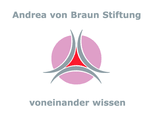 The Award 2015 was endowed by the Andrea von Braun Stiftung.
The Award 2015 was endowed by the Andrea von Braun Stiftung.
